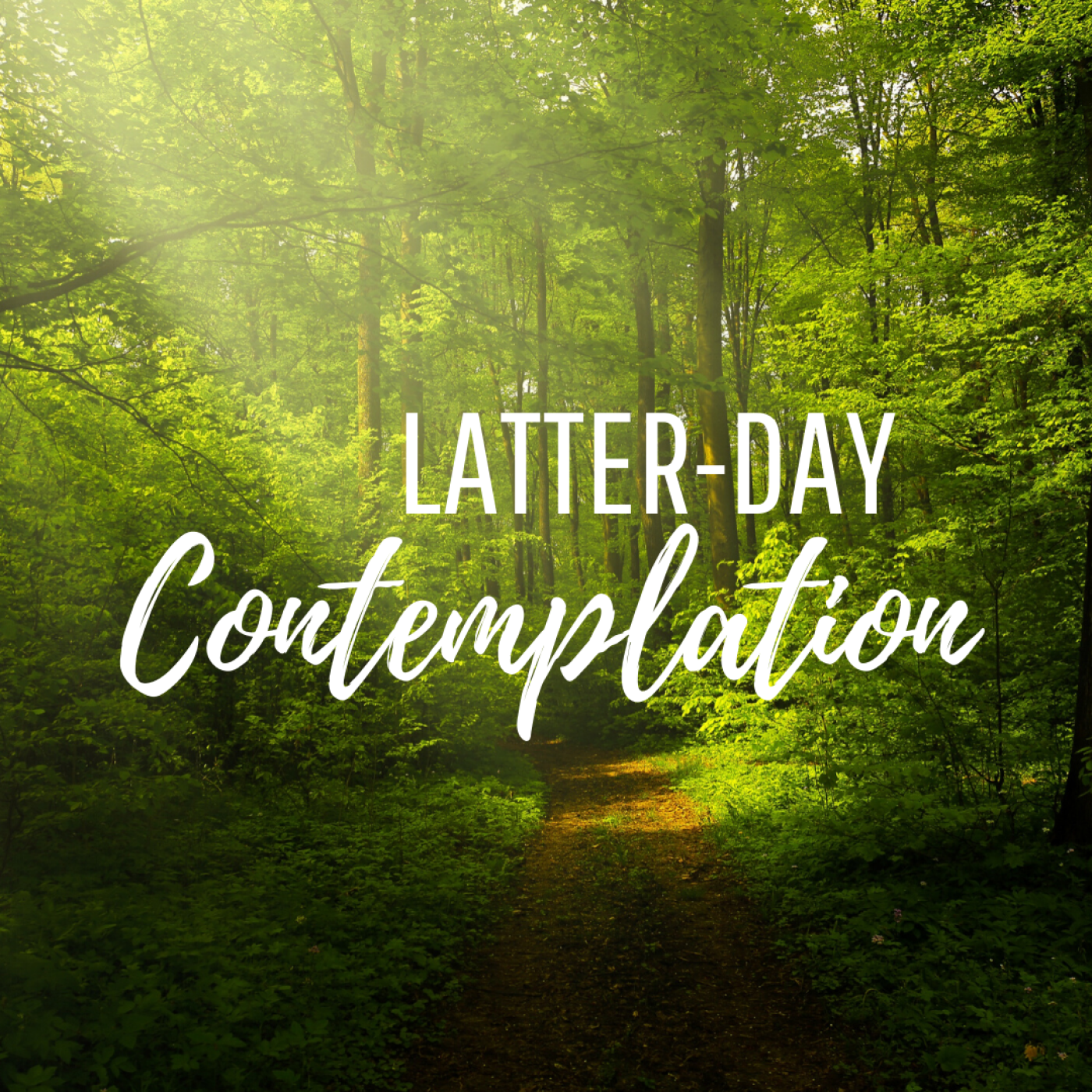-
Episode 69: Contemplative Habits & Rituals
For this episode of Latter-day Contemplation Riley welcomes back Phil McLemore to discuss the power habits and rituals. Habits can be positive or negative and ultimately become the structural backbone of our lives. As we learn to use them in productive ways we are led to lives of inner and outer transformation. However, habits have the potential to become an unconscious, soul and agency destroying cancer that compounds the problems of the “natural man”. Bringing conscious awareness to the individual and accumulated habits which form our routines can help us replace entropic, destructive processes with what Christ called “living water”. They offer specific ideas and guidance based on the book…
-
Episode 105: 2 Samuel, 1 Kings 1-11
Ben flies solo in this episode on 2 Samuel and 1 Kings. The reign of David and Solomon are the golden age of Israelite history. Despite civil wars and brutal rebellions, the monarchy persists and grows in its prestige and splendor. David’s sins bring great tragedy and sorrow, but seem to have some profound and timeless lessons. Solomon fulfills his father’s promise to build the temple and the project takes on cosmic themes that remind us of the creation in Genesis.
-
Episode 104: 1 Samuel
Ben and Christopher continue with a discussion of the first book of Samuel. The various sources that make up the book portray multiple perspectives on monarchy and the kingship. Saul is anointed as the first king of Israel. His military success initially endears him to the people, but his disobedience causes him to lose favor with Samuel and God. David is anointed to succeed Saul and the narrative recounts stories of his bravery, piety, and military prowess. The story of David and Goliath is the unmistakable source of literary allusion in Nephi’s account of slaying Laban in the Book of Mormon. What might this say about Nephi’s intent, message, inspiration,…
-
Episode 103: Ruth
The book of Ruth is a love story about a particular kind of love. Hesed is often translated as loving kindness, but it is also loyalty, grace, and courage. It is the kind of love that characterizes the covenant relationship of God with the people or of a man and his wife. Ruth exemplifies hesed in her relationships with Naomi and with Boaz, counting her a worthy ancestor to the Davidic line despite being a foreigner. Hannah pours out her soul to God and is filled. The life of Samuel prepares him for the unique role he will play in transitioning Israel from being ruled by judges to being ruled…
-
Episode 102: Judges
The book of Judges traces a pseudo-history of the Israelites after the conquest of Joshua. Israelite judges are more often legendary military heroes than arbitrators of justice. The people follow a cycle of obedience, success, idolatry, bondage, and deliverance. The message is that while God will always deliver his people, the cycle of disorder and bondage can only be broken by a centralized monarchy. “There was no king in Israel” foreshadows the arrival of an anointed king and also evokes a Christological hermeneutic. The symbolism of trees returns in the account of the prophetess Deborah, the calling of Gideon, and the fable of the trees in search of a king.…
-
Episode 101: Joshua
The Book of Joshua recounts the Israelites’ story of their conquest of Canaan. The Israelites are tasked with creating a sacred space for God’s presence. Ben and Christopher discuss the perennial question of Divine Genocide as presented in the text. How does the rhetoric of the text match up with actual known history? If the Israelites didn’t actually kill the Canaanites en masse, then why does the text say they did? What does the Book of Joshua have to say to modern peace-loving Christians?
-
Episode 100: Deuteronomy
Deuteronomy, Devarim, Words. Moses’ words recall his uneasy relationship with speech all the way back to his conversation with God at the burning bush. Moses recounts Israelite history from the Exodus on, continually reiterating that he will not cross into the promised land with his people. This melancholy reminiscing of Moses is likely a product of later editors who crafted this text to fit their contemporary religious reforms around the 7th Century BC. God is more narrowly defined and religious practice is centralized under the authority of the temple priests. This context provides interesting possibilities for the narrative of Lehi and his family in the Book of Mormon. To what…
-
Episode 68: Contemplating Art with Greg Olsen
In this episode Christopher and Riley welcome artist Greg Olsen. Greg is particularly well-known in LDS circles as a painter of Jesus. Our hosts had the opportunity to mine his experiences becoming a professional painter of religious iconography and images that convey the relatable nature of the Savior. Of course, he is much more than his public works and this conversation takes them through his contemplative practices, the nature of symbols, and simplifying our faith by practicing loving-kindness.
-
Episode 99: Numbers
Numbers, Bamidbar, In the Wilderness. The children of Israel journey in the wilderness, encountering death, failure, rebellion, and hope. In this largely imagined past there are profound ties to psychological and philosophical questions. Moses struggles with his responsibility as leader and prophet while the people murmur. The threat and reality of divine violence are ever-present, even when God’s mercy and love shine through the cracks. The staff of Moses has been a consistent symbol of divine authority and force, but does God have a new way to offer Moses that involves persuasion and gentleness through speech? The Brazen Serpent is raised in the wilderness, offering to heal all who look…
-
Episode 98: Exodus 35-40; Leviticus 1-27
Can we properly understand the Old Testament if we skip reading some of its chapters? In this longer-than-usual episode, Ben and Christopher tackle Exodus 35-40 and the entire book of Leviticus. This intimidating section of scripture was difficult to approach, but with some help from the great Rob Bell, much of the seemingly irrelevant and bizarre has taken on relevance and profound meaning. In this Priestly manual, the sons of Aaron are invited to participate in the tending of the sacred space created in the Tabernacle as part of a new creation extending beyond it. Israel is called to be this new creation because the LORD has delivered them from…


